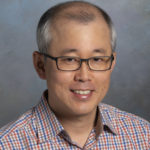
Professor of Mathematics Leo Lee
Professor of Mathematics Leo Lee saw the recent publication of his paper “A Domain Decomposition Algorithm for Optimal Control Problems Governed by Elliptic PDEs with Random Inputs” in the Journal of the Applied Mathematics and Computation.